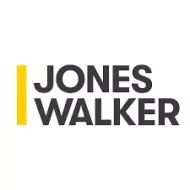- within Corporate/Commercial Law topic(s)
- with readers working within the Basic Industries, Media & Information and Law Firm industries
- within Insurance, Law Practice Management, Government and Public Sector topic(s)
Public companies are required to provide disclosure in their proxy statements regarding the quorum necessary to convene a shareholder meeting, the vote required for shareholder approval of each proposal to be considered at a meeting, and how votes will be counted, including the treatment and effect of abstentions, broker non-votes, and withhold votes. Further, the proxy cards that are distributed to shareholders in connection with a shareholder meeting must clearly indicate the voting choices available to shareholders for each proposal.
The accuracy and consistency of these disclosures are critical. While it is not common for the Securities and Exchange Commission (SEC) to issue comment letters on voting standard disclosures in annual meeting proxy statements, certain shareholders pay close attention to these disclosures and, more frequently in recent years, have sent demand letters on the basis of alleged incorrect disclosures, including for seemingly meaningless or immaterial inconsistencies and typographical errors. It is important for a company to fully understand how its quorum and voting standards work in order to draft accurate proxy disclosure and correctly count shareholder votes. A misunderstanding or misapplication of such standards can lead to inaccurate proxy disclosures, incorrect counting of votes, and, ultimately, legal threats or challenges from enterprising plaintiff firms.
This Client Alert guides corporations, particularly in Delaware, Texas, Nevada, and Louisiana, on how to navigate various quorum and voting standards to avoid inaccurate proxy disclosure and/or incorrect counting of shareholder votes.
Applicable Quorum and Voting Standards
The first step a company must take to draft accurate proxy disclosure is determining the applicable quorum for the shareholder meeting and the voting standard for each proposal to be considered at the meeting. This involves a careful analysis of applicable state laws, the corporation's governing documents (i.e., its charter and/or bylaws), and, in some instances, the rules of the applicable stock exchange, which may differ depending on which proposals are being considered at the meeting.
State Law Default Standards and Governing Documents
The laws of the state of incorporation of a company dictate the default quorum for shareholder meetings and the voting standards for the approval of matters by the company's shareholders. Although state laws set the default quorum and voting standards, companies are generally able to deviate from these default rules in their governing documents, subject to certain exceptions and limitations.
If a company's charter and/or bylaws provide for a quorum or voting standard that differs from the default rules under state law, the corporation's governing documents will govern. Additionally, charter provisions generally take precedence over bylaw provisions, so if the quorum or voting standards in the company's charter conflict with its bylaws, the language in the charter will typically govern.
Appendix A summarizes the default quorum and voting standards, the ability of companies to deviate from the default standards, and other relevant information under the current corporation law of the states of Delaware, Texas, Nevada, and Louisiana.1
Stock Exchange Rules
In some instances, the applicable voting standard may be mandated by the stock exchange on which the company's securities are listed. For example, both the New York Stock Exchange (NYSE) and The Nasdaq Stock Market (Nasdaq) rules require shareholder approval for equity compensation plans, certain related-party transactions, stock issuances above certain thresholds, and change of control transactions.2 Further, NYSE and Nasdaq rules provide that where shareholder approval is a prerequisite for the listing of new or additional securities or where a matter requires shareholder approval, the minimum vote that will constitute shareholder approval for such purposes is a majority of votes cast.3
In practice, these NYSE and Nasdaq rules regarding voting standards serve as minimum shareholder approval requirements for certain corporate actions. However, if a company's governing documents or state law provide for a more stringent voting requirement, that more stringent requirement would govern the approval of the applicable corporate action, notwithstanding stock exchange rules.
Counting Votes and Treatment of Abstentions, 'Withhold' Votes, and Broker Non-Votes
After determining that a quorum has been established and the applicable voting standard for each proposal to be considered, the next step is to determine how to correctly count the votes, including how abstentions, withhold votes, and broker non-votes should be treated. Again, this process involves understanding the applicable voting standards, state law, relevant provisions of the company's governing documents, and the rules of the applicable stock exchange.
Voting Options (Other than Election of Directors); Treatment of Abstentions
Outside the director election context, shareholders typically have three voting options: (1) to vote "for" a proposal, (2) to vote "against" a proposal, or (3) to "abstain" from voting on a proposal. An abstention is a shareholder's affirmative choice to not vote on a proposal, when the shareholder is present at the meeting and entitled to vote on the proposal.4 Depending on the applicable standards, abstentions will be treated as either (1) shares that are present and entitled to vote for purposes of the quorum and counted as votes cast, or (2) shares that are present and entitled to vote for purposes of the quorum but not counted as votes cast.5
Election of Directors Voting Options; Treatment of Withhold Votes
In an uncontested election of directors with a plurality voting standard, shareholders will have only two voting options: (1) "for" or (2) "withhold." This is because, under the plurality standard, the directors who receive the most votes "for" their election will be elected to the board. Thus, in an uncontested election, a single "for" vote is sufficient to elect any one director (assuming a quorum is present) and an "against" vote would be meaningless. Instead, SEC rules require that companies allow shareholders to withhold authority to vote "for" any director nominee (rather than vote "against").6 Although "withhold" votes generally have no effect in an uncontested election of directors under a plurality voting standard, "withhold" votes will have an impact for companies that have selected a "plurality plus" voting standard, which is when a company has a mandatory director resignation policy if a candidate receives more "withhold" votes than "for" votes.7
Treatment of Broker Non-Votes
Shareholders commonly hold shares of public companies through a bank, broker, trustee, or other nominee, instead of directly in their own name (commonly referred to as shares held in "street name"). Shareholders who hold shares in street name are considered "beneficial owners" of their shares and the bank, broker, trustee, or other nominee is the "record holder" of the shares. The bank, broker, trustee, or other nominee will request voting instructions from the beneficial owner on how to vote shares on the matters being presented for a vote of the corporation's shareholders. Banks, brokers, trustees, or other nominees are permitted under the governing NYSE rule to vote on certain "routine" matters (e.g., ratification of auditors) without receiving voting instructions from the beneficial owner.8 This is commonly known as "broker discretionary voting."9 However, banks, brokers, trustees, or other nominees are not permitted to vote on "nonroutine" matters (e.g., election of directors and say on pay) if the beneficial owner does not provide voting instructions with respect to the nonroutine matters, resulting in what is known as a "broker non-vote." Typically, broker non-votes will not be considered a vote cast, but if there is at least one routine/discretionary matter on the ballot that the broker can vote on, the shares held by such broker will be considered present for purposes of establishing a quorum. Similar to abstentions, the effect that broker non-votes have on the outcome of a shareholder vote depends on the applicable voting standard for the matter.
Appendix B summarizes the various default voting standards, common deviations from the default voting standards, and the counting of votes, including the treatment of abstentions and broker non-votes.
Companies should carefully review with counsel applicable state law, stock exchange rules, and the specific wording of any quorum and voting provisions found in their governing documents. Even small or seemingly benign deviations from the default standard under state law (or between the standards provided in the company's charter versus its bylaws) can change the meaning, which could impact the proxy disclosure and determination of a quorum or the counting of the votes for a given proposal (e.g., changing "entitled to vote thereat" to "entitled to vote thereon" can change how votes are counted), which can lead to unnecessary effort and expense to correct potentially significant issues (if, for example, a vote result is not properly calculated), or result in costly litigation.
APPENDIX A*
* When determining the applicable standards, also review and consider any applicable stock exchange requirements in addition to state law and deviations in governing documents.
Delaware (Delaware General Corporation Law)
|
Quorum10 |
Voting |
|||
|
Election of Directors11 |
Most Other Proposals12 |
Mergers/Most Charter Amendments/Business Combinations/Sales of All or Substantially All Assets13 |
||
|
Default Standard |
Majority of the shares entitled to vote |
Plurality of the votes of shares present and entitled to vote on the election of directors |
Affirmative vote of the majority of shares present and entitled to vote on the subject matter |
Majority of the outstanding stock of the corporation entitled to vote14 |
|
Deviation Permitted? |
Yes |
Yes |
Yes |
Yes |
|
If Permitted, Must Deviation Be in Charter or Bylaws? |
Charter or Bylaws |
Charter or Bylaws Supermajority provisions generally should be set forth in the charter15 |
Charter or Bylaws Supermajority provisions generally should be set forth in the charter15 |
Charter |
|
Restrictions or Limitations on Deviations |
In no event shall a quorum consist of less than one-third of the shares entitled to vote at the meeting |
No notable restrictions or limitations on deviations not noted above |
No notable restrictions or limitations on deviations not noted above |
May deviate only to increase the standard above the default16 |
Texas (Texas Business Organizations Code)
|
Quorum17 |
Voting |
|||
|
Election of Directors18 |
Most Other Proposals19 |
Mergers/Most Charter Amendments/Business Combinations/Sales of All or Substantially All Assets20 |
||
|
Default Standard |
Majority of the shares entitled to vote at the meeting |
Plurality of the votes cast |
Majority of the shares entitled to vote on, and who voted for, against or expressly abstained with respect to the matter |
Affirmative vote of the holders of at least two-thirds of the outstanding shares of the corporation entitled to vote |
|
Deviation Permitted? |
Yes |
Yes |
Yes |
Yes |
|
If Permitted, Must Deviation Be in Charter or Bylaws? |
Charter |
Charter or Bylaws |
Charter or Bylaws |
Charter |
|
Restrictions or Limitations on Deviations |
May not provide for a quorum that is less than one-third of the shares entitled to vote |
May not provide for directors to be elected by the vote of the holders of less than a majority (i) of the shares entitled to vote, (ii) of the shares entitled to vote and present at the meeting, or (iii) of the votes cast by holders entitled to vote |
May not provide for approval by holders of less than a majority (i) of the shares entitled to vote; (ii) of the shares entitled to vote and present at the meeting; (iii) of the shares entitled to vote, and who voted for or against, and present at the meeting; or (iv) of the shares entitled to vote, and who voted for, against, or expressly abstained with respect to, and present at the meeting |
May not provide for approval by holders of less than a majority of the shares entitled to vote on the matter[21] |
Nevada (Nevada Business Corporation Act)
|
Quorum22 |
Voting |
|||
|
Election of Directors23 |
Most Other Proposals24 |
Mergers/Most Charter Amendments/Business Combinations/Sales of All or Substantially All Assets25 |
||
|
Default Standard |
Majority of the voting power |
Plurality of the votes cast |
Majority of the votes cast |
Majority of the voting power |
|
Deviation Permitted? |
Yes |
Yes |
Yes |
Yes |
|
If Permitted, Must Deviation Be in Charter or Bylaws? |
Charter or Bylaws |
Charter or Bylaws |
Charter or Bylaws |
Charter |
|
Restrictions or Limitations on Deviations |
No notable restrictions or limitations |
May deviate only to increase the standard above the default |
No notable restrictions or limitations |
May deviate only to increase the standard above the default |
Louisiana (Louisiana Business Corporation Act)26
|
Quorum27 |
Voting |
|||
|
Election of Directors28 |
Most Other Proposals29 |
Mergers/Most Charter Amendments/Business Combinations/Sales of All or Substantially All Assets30 |
||
|
Default Standard |
Majority of the votes entitled to be cast on the matter |
Plurality of the votes cast by shares entitled to vote in the election |
Majority of the votes cast |
Majority of the votes entitled to be cast |
|
Deviation Permitted? |
Yes |
Yes |
Yes |
Yes |
|
If Permitted, Must Deviation Be in Charter or Bylaws? |
Charter |
Charter |
Charter |
Charter |
|
Restrictions or Limitations on Deviations |
May not provide for a quorum that is lower than 25% of the votes entitled to be cast on the matter31 |
No notable restrictions or limitations |
May deviate only to increase the standard above the default |
May deviate only to increase the standard above the default |
APPENDIX B
|
|
Counting Votes Using Common Voting Standards |
|||
|
Majority of Votes Cast Louisiana, Model Business Corporation Act (MBCA), and Nevada default standard for most matters “More votes for than against” |
Majority of Shares Present and Entitled to Vote on the Subject Matter/Thereon* Delaware and Texas** default for most matters |
Majority of Shares Present in Person or Represented by Proxy; Majority of Shares Present and Entitled to Vote at the Meeting/Thereat “Majority of quorum” |
Majority of Outstanding Shares General default for mergers, most charter amendments, certain business combinations, and sales of all or substantially all assets |
|
|
Formula |
Numerator: # of votes “for” Denominator: Sum of # of votes “for” and “against” |
Numerator: # of votes “for” Denominator: Sum of # of votes “for” and “against” and abstentions** |
Numerator: # of votes “for” Denominator: Sum of # of votes “for” and “against,” abstentions, and broker non-votes |
Numerator: # of votes “for” Denominator: # of outstanding shares |
|
Treatment of Abstentions |
No effect |
Same as vote “against” |
Same as vote “against” |
Same as vote “against” |
|
Treatment of Broker Non-Votes32 |
No effect |
No effect |
Same as vote “against”*** |
Same as vote “against” |
* Also commonly phrased as “Majority of the Voting Power Present in Person or Represented by Proxy”; note that Delaware courts have interpreted “voting power present” to mean shares that are “present and entitled to vote on the subject matter.”
** The default voting standard under Texas law is a “majority of the shares entitled to vote on, and who voted for, against or expressly abstained with respect to the matter,” which is “majority of votes cast,” but since abstentions specifically count as a “vote cast,” this would be the formula for counting votes under Texas’ default voting standard for most proposals.
*** Assumes there is a discretionary matter on the ballot such that the broker can vote on at least one matter and is considered present at the meeting for purposes of a quorum.
Footnotes
1. The applicable state law requirements for companies that are not a corporation or were incorporated in states that are not listed in the appendices to this Client Alert are beyond the scope of this Client Alert. Such companies should consult with their counsel and evaluate the state law requirements applicable to them. Additionally, Appendix A does not get into the nuances involved with class voting, including the upcoming changes to Texas law regarding class voting.
2. See NYSE Listed Company Manual Section 312.03; see also Nasdaq Rule 5635(e)(4).
3. See NYSE Listed Company Manual Section 312.07; see also Nasdaq Rule 5635(e)(4). Note that the NYSE and Nasdaq do not prescribe a particular interpretation of "votes cast" but rather allow a listed company to calculate votes cast in accordance with its governing documents and applicable state law. See NYSE Listed Company Manual, Section 312.07; Nasdaq FAQs- Listings: Identification Number 202 (https://listingcenter.nasdaq.com/Material_Search.aspx?cid=71&mcd=LQ).
4. For purposes of this Client Alert, the term "present" includes present in person, including virtually (if permitted by state law), or by proxy.
5. See Tex. Bus. Orgs. Code § 21.363 indicating that the default voting standard under Texas law is a "majority of the shares entitled to vote on, and who voted for, against or expressly abstained with respect to the matter," which effectively means that abstentions count as "votes cast."
6. See Rule 14a-4(b)(4) promulgated under the Securities Exchange Act of 1934, as amended.
7. Under the plurality plus standard, the vote required to elect a director under the company's charter and/or bylaws is a plurality vote; however, the company has a director resignation policy requiring directors who do not receive a majority vote (or some other specified vote) to submit an offer of resignation.
8. NYSE Rule 452 governs the conduct of all banks, brokers, trustees, or other nominees who are NYSE members and is applicable to shares listed on the NYSE, Nasdaq, and other securities exchanges.
9. Even though permitted to do so, many banks, brokers, trustees, and other nominees do not vote on discretionary proposals if voting instructions from the beneficial owner have not been received.
10. See 8 Del. C. § 216.
11. See 8 Del. C. § 216(3).
12. See 8 Del. C. § 216(2).
13. See 8 Del. C. § 251(c); but see §§ 251(f)–(h), 253, and 267; see also §§ 242(b)(1) and 271(a).
14. Note that no shareholder vote is required to amend the charter (i) to change a corporation's name; (ii) to delete provisions regarding its incorporators, initial board of directors, or original subscribers for shares or effecting a change, exchange, reclassification, subdivision, combination, or cancellation of stock that has become effective; or (iii) if the corporation has only one class of outstanding stock that is not divided into series, to effect a forward stock split or a proportional increase in authorized shares to accommodate it. See 8 Del. C. § 242(d)(1). In addition, the voting threshold is decreased to a majority of votes cast by the shareholders entitled to vote thereon for reverse stock splits and amendments to the charter to increase or decrease the number of authorized shares that meet the requirements specified in 8 Del. C. § 242(d)(2).
15. See 8 Del. C. § 102(b)(4), which provides that the charter may contain "[p]rovisions requiring for any corporate action, the vote of a larger portion of the stock or of any class or series thereof than is required by this chapter."
16. However, the voting threshold for business combinations with interested shareholders may not be increased in the charter. See 8 Del. C. § 203(d).
17. See Tex. Bus. Orgs. Code § 21.358.
18. See Tex. Bus. Orgs. Code § 21.359.
19. See Tex. Bus. Orgs. Code § 21.363.
20. See Tex. Bus. Orgs. Code §§ 21.457 and 21.364.
21. See Tex. Bus. Orgs. Code § 21.365.
22. See Nev. Rev. Stat. § 78.320(1).
23. See Nev. Rev. Stat. § 78.330(1).
24. See Nev. Rev. Stat. § 78.320(1).
25. See Nev. Rev. Stat. §§ 92A.120(5), 78.565(1), and 78.390.
26. Louisiana adopted a customized version of the MBCA, effective January 1, 2015. The MBCA is a model act created by the American Bar Association. The quorum and voting standards set forth in this chart for Louisiana are identical to the MBCA quorum and voting standards (except that the MBCA does not have the same restriction under Louisiana law that the charter may not provide for a quorum that is lower than 25% of the votes entitled to be cast on the matter). Note that as of the date of this Client Alert, 36 US states and territories have adopted all or substantially all of the MBCA. Delaware, Texas, and Nevada are not model act jurisdictions.
27. See La. R.S. § 12:1-725(A).
28. See La. R.S. § 12:1-728(A).
29. See La. R.S. § 12:1-725(C).
30. See La. R.S. §§ 12:1-1104(5), 12:1-1202(E), and 12:1-1003(A)(3).
31. See La. R.S. § 12:1-727(A).
32. The treatment of broker non-votes in this chart assumes that the matter presented is a nondiscretionary/nonroutine matter. If the applicable proposal was a discretionary/routine matter, there would be no broker non-votes and broker non-votes would be inapplicable/have no effect on the outcome of the proposal.
The content of this article is intended to provide a general guide to the subject matter. Specialist advice should be sought about your specific circumstances.





